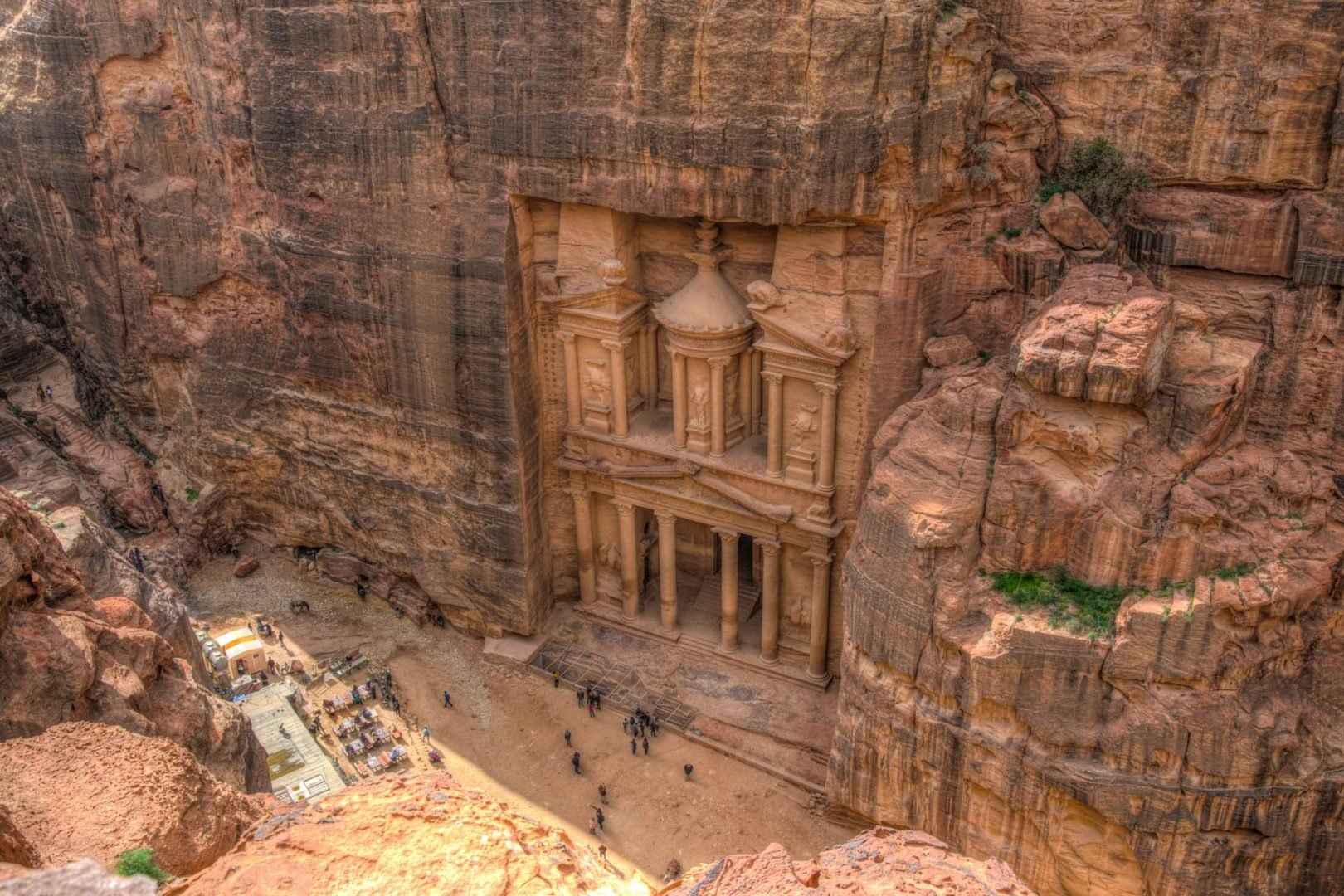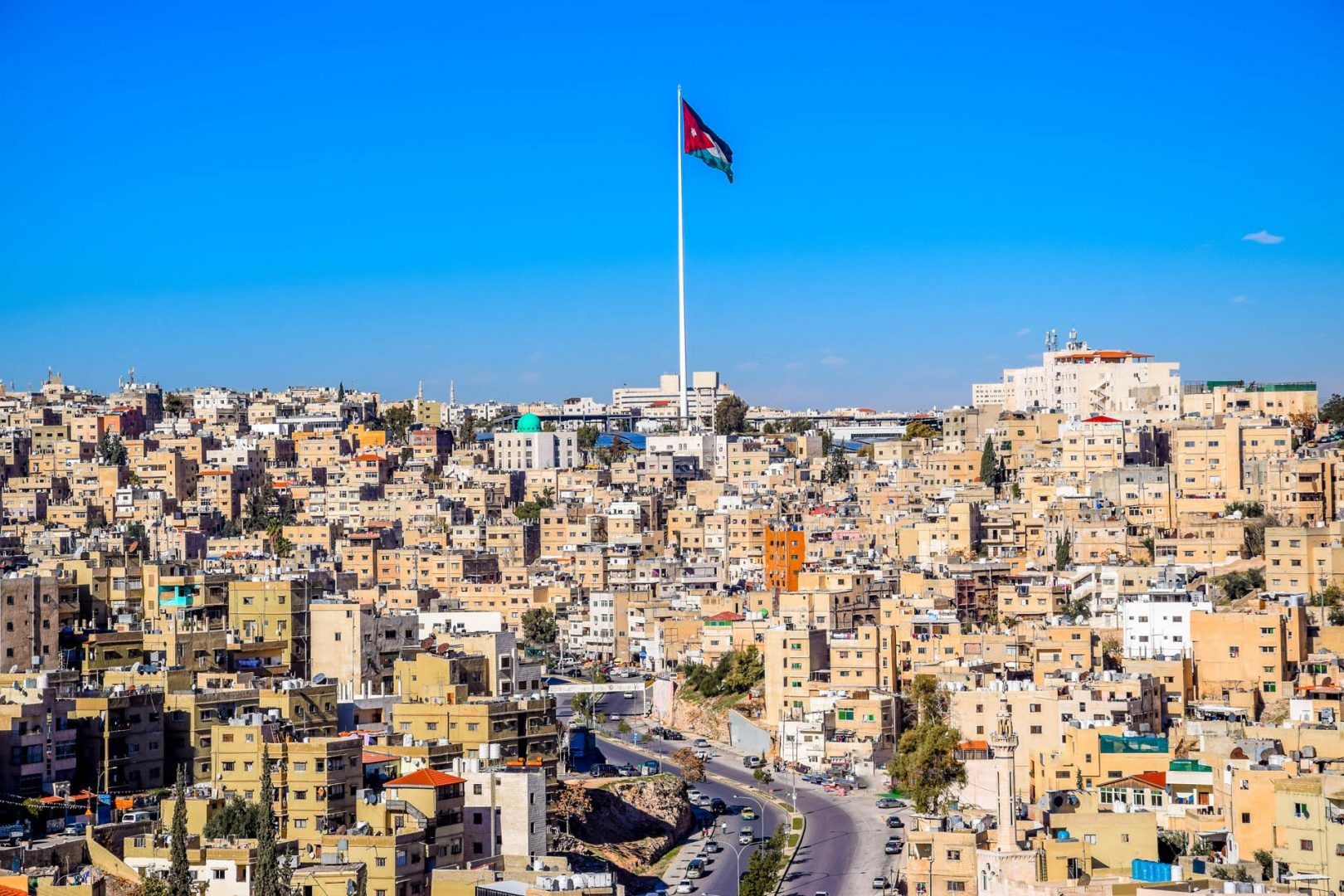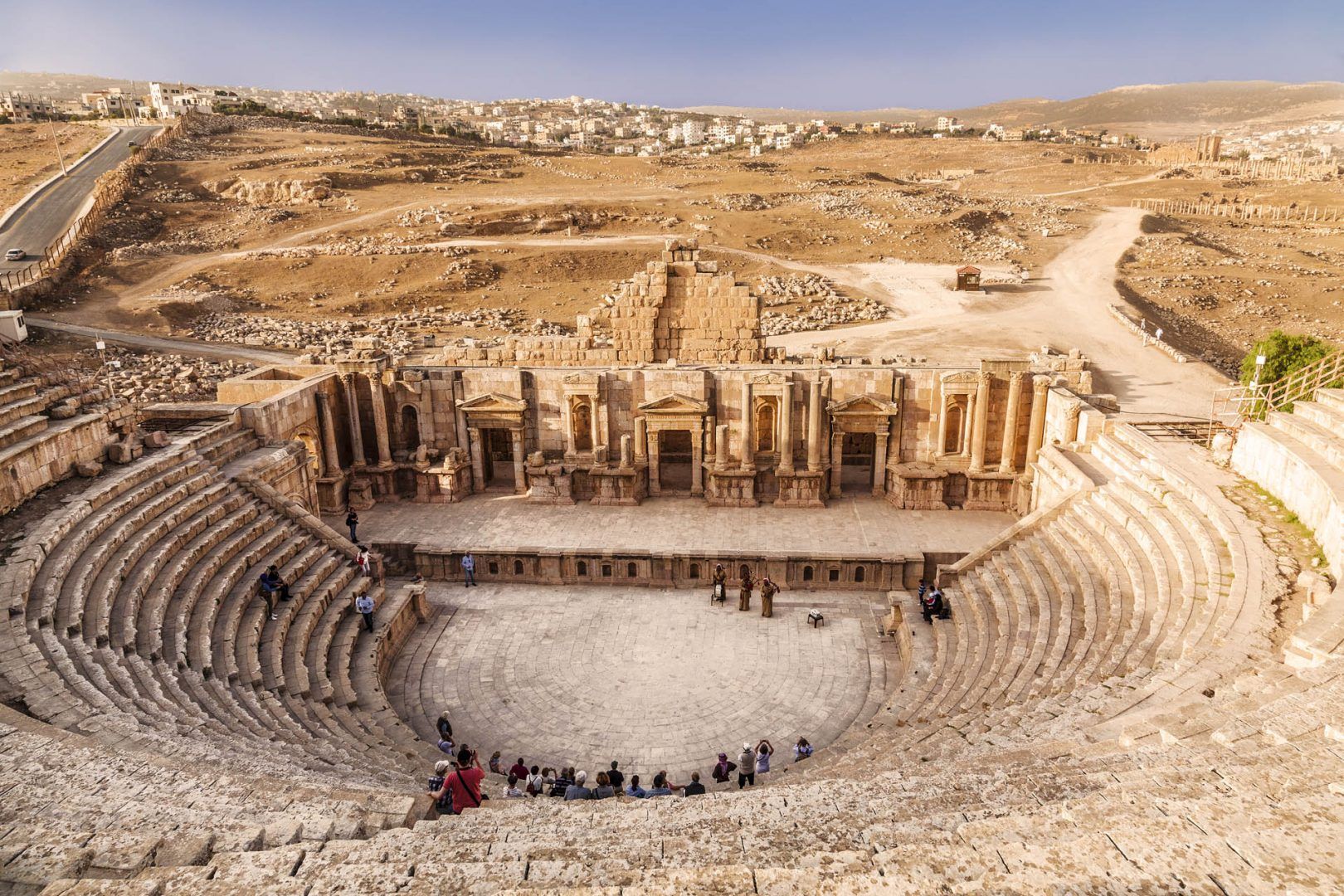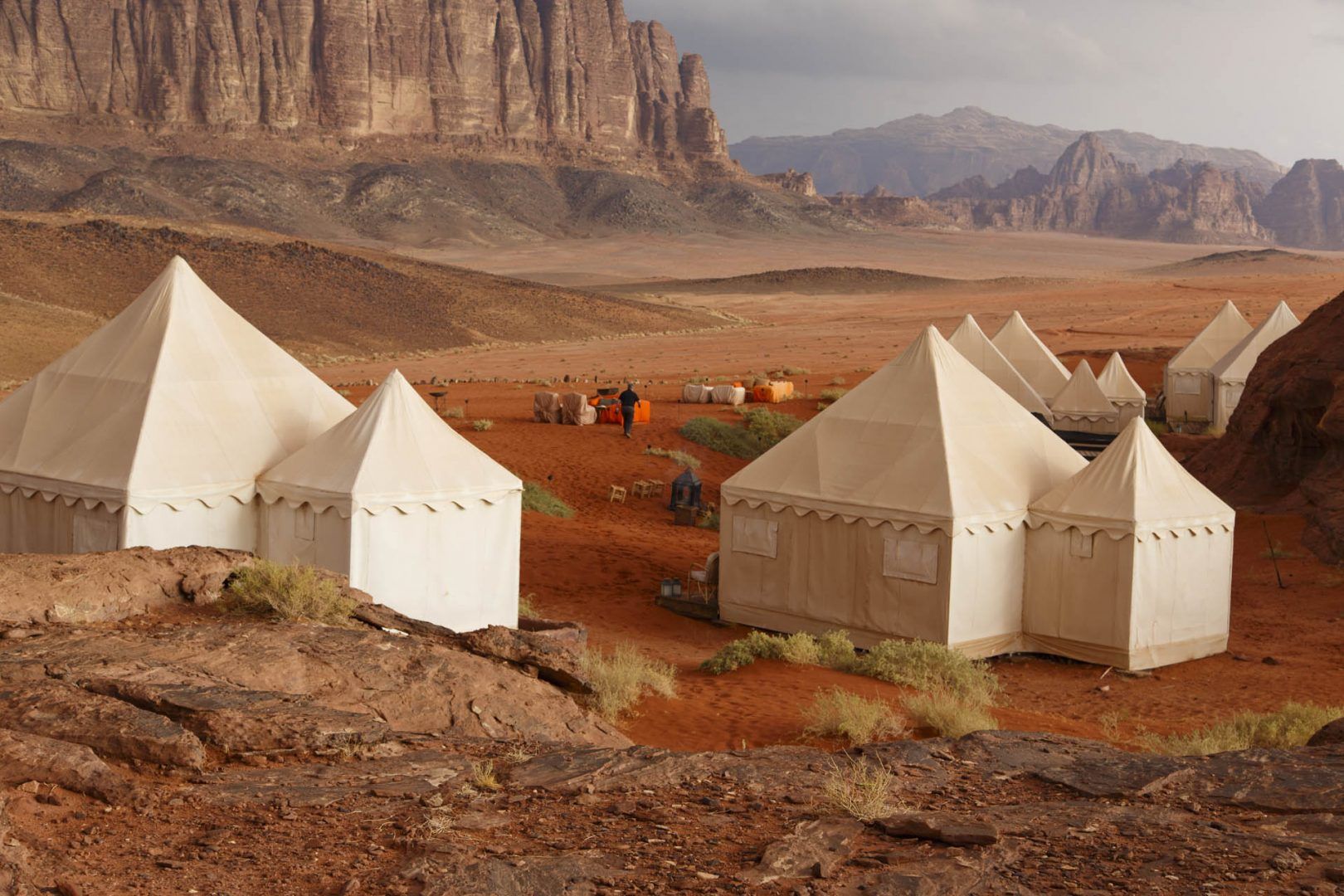Planning your own trip? Prepare for your trip
Use Rough Guides' trusted partners for great rates
Book your individual trip, stress-free with local travel experts
Plan your tailor-made trip with a local expert
Book securely with money-back guarantee
Travel stress-free with local assistance and 24/7 support
A. Weichselbraun
We were very happy with our guides. They had excellent people skills, were very knowledgeable and accommodating. We can only highly recommend them.
Read all reviews ⤍Western travellers have been exploring the Middle East for well over a century, but Jordan is a relative newcomer to tourism, welcoming only a fraction of the numbers who visit neighbouring Egypt and Israel. Its popular image abroad encompasses not much more than camels and deserts, yet this is a country of mountains, beaches, castles and ancient churches, with an urbane people and a rich culture. It is safe, comfortable and welcoming – and by far the region’s most rewarding destination to travel.
Jordan is about 85 percent desert, but this one plain word covers a multitude of scenes, from the dramatic red sands and towering cliffs of the far south to the vast stony plains of volcanic basalt in the east. The northern hills, rich with olive trees, teeter over the rift of the Jordan Valley, which in turn runs down to the Dead Sea, the lowest point on earth. The centre of the country is carpeted with tranquil fields of wheat, cut through by expansive canyons and bordered by arid, craggy mountains. At Jordan’s southernmost tip, beaches fringe the warm waters of the Red Sea, which harbours some of the most spectacular coral reefs in the world.
There are many fascinating places to visit in Jordan, from ancient Nabataean cities to the world-famous salt lake, known as the Dead Sea. Here is a handful of the best places to go in Jordan:

Treasury at Petra, Jordan © trabantos/Shutterstock
Magnificent ancient city hidden away in the craggy mountains of the south – one of the world’s must-see attractions.
Enjoy spectacular sunsets at the lowest point on earth, floating effortlessly on this inland lake supported only by the density of the salty water.
Experience the atmosphere of the open desert in the stunning company of sheer mountains, red dunes and vast, silent panoramas.

Amman midtown with the Jordan flag in the background © tenkl/Shutterstock
Roman columns and the ruins of an Islamic-era palace tower over Amman, gazing down on a huge Roman theatre in the heart of the city.
Head south for some of the Red Sea’s best-preserved coral reefs and greatest marine biodiversity.
Follow in the footsteps of Moses to this summit above the Dead Sea (named in Deuteronomy), to gaze out over the Promised Land.
Take a day to explore this fascinating string of early-Islamic forts, bathhouses and caravanserais east of Amman on a convenient, easy-to-navigate loop of roads.

Large South Theatre - in antique town Jerash © volkova natalia/Shutterstock
A spectacularly well-preserved Roman city, complete with colonnaded streets, grand temples, intimate marketplaces and mosaic-floored churches.
Jordan is part of the land bridge linking Europe, Africa and Asia, and has seen countless armies come and go. Greeks, Romans, Muslims, Christian Crusaders and more have left evidence of their conquests, and there are literally thousands of archeological sites from all periods in every corner of the country. In addition, Israel and Palestine, Jordan’s neighbours to the west, have no monopoly on biblical history: it was in Jordan that Lot sought refuge from the fire and brimstone of the Lord; Moses, Aaron and John the Baptist all died in Jordan; and Jesus was almost certainly baptized here. Even the Prophet Muhammad passed through.
And yet the country is far from being stuck in the past. Amman is a thoroughly modern Arab capital, and poverty is the exception rather than the rule. The government, under head of state King Abdullah II, manages to be simultaneously pro-Western, pro-Arab, founded on a bedrock of Muslim authority and committed to peace with Israel. Women are better integrated into positions of power in government and business than almost anywhere else in the Middle East. Jordanians are also exceptionally highly educated: roughly four percent of the total population is enrolled at university, a proportion comparable to the UK. Traditions of hospitality are ingrained, and taking up some of the many invitations you’ll get to tea or a meal will expose you to an outlook among local people that is often as cosmopolitan and world-aware as anything at home. Domestic extremism is very rare.

Desert camp at Wadi Rum, Jordan © Ahmad A Atwah/Shutterstock
Most people take great pride in their ancestry, whether they’re present or former desert-dwellers (bedouin) or from a settled farming tradition (fellahin). Across the desert areas, people still live and work on their tribal lands, whether together in villages or apart in individual family units. Many town-dwellers, including substantial numbers of Ammanis, also claim tribal identity. Belonging to a tribe (an honour conferred by birth) means respecting the authority of a communal leader, or sheikh, and living in a culture of shared history, values and principles that often crosses national boundaries. Notions of honour and mutual defence are strong. Tribes also wield a great deal of institutional power: most members of Jordan’s lower house of parliament are elected for their tribal, rather than political, affiliation. The king, as sheikh of sheikhs, commands heartfelt loyalty among many people and respect among most of the rest.
National identity is a thorny issue in Jordan, which has taken in huge numbers of Palestinian refugees since the foundation of the State of Israel in 1948. Many people from tribes resident east of the River Jordan before 1948 resent this overbalancing of the country’s demography, as well as the fact that Palestinians, having developed an urbanized, entrepreneurial culture, dominate private-sector business. For their part, Jordanians of Palestinian origin – by some estimates comprising more than sixty percent of the population – often resent the “East Bank” Jordanians’ grip on power in government and the public sector. All are Jordanian citizens, but citizenship tends to mean less to many of Palestinian origin than their national identity, and less to many East Bankers than their tribal affiliation. Recent influxes of refugees from Iraq and Syria, plus large numbers of long-stay guest workers from Egypt, muddy the issue still further. “Where are you from?” – a simple enough question in many countries – is in Jordan the cue for a life story.
Top image: Ad Deir temple, Petra © tenkl/Shutterstock
Although Jordan has a homogeneous population, society is characterized by overlapping layers of identity. You’ll often come across expressions of religious and social sensibility that sound refreshingly unfamiliar to Western ears.
Almost Jordan’s entire population is Arab. This is an ethnic term, but also marks a pan-national identity, largely because nation-states are relatively new: many people in Jordan feel a much stronger cultural affinity with Arabs from nearby countries than, say, Britons might feel with Belgians. The bedouin add a deeper layer of meaning by often regarding themselves to be the only true, original Arabs. Jordan has tiny ethnic minorities of Circassians and Chechens (who are Muslim), Armenians (Christian) and Kurds (Muslim) – all of whom are closely bound into Jordanian society – as well as Dom gypsies (also Muslim).
Roughly 92 percent of Jordanians are Sunni Muslim, and the observance of Islam is a central part of daily life for most people across the country. The call to prayer sounds five times a day in every city, town and village. Jordan’s largest religious minority, totalling around six percent, are Christians, most of whom are Greek Orthodox, but also including Melkite Catholics, Roman Catholics, Syrian Orthodox, Armenian Orthodox, Coptic Orthodox, Maronites and some Protestants (Lutherans, Baptists, Episcopalians and others). There are also small communities of Shia Muslims, Druze and Bahai. Expats aside, there are no Jews in Jordan.
There persists a perceived difference between people whose origins lie in families long resident on the east bank of the River Jordan and people whose families originate on the west bank of the river. All are Jordanian citizens, yet Jordanians of Palestinian origin are estimated to number between half and three-quarters of the total population. Roughly seven percent of people in Jordan are expats, including guest workers – many of them Egyptian, Sri Lankan and Filipino – alongside a sizeable population of Iraqi refugees.
A tribe is an extended grouping of families who cultivate a distinctive tradition of history and folklore (mainly oral) and assert ownership of a particular territory. Not all tribes are desert-dwelling – there are many whose background is rural, and others who have become urbanized. Tribal territories, which predate nation-states, often extend across international borders. Some tribes are made up of clans and branches which have taken on tribe-like status; others have banded together in larger, often pan-national, tribal confederations. All these concepts are rather loose, but for a lot of Jordanians, tribal identity is at least as strong as religious or national identity.
Within tribal identity, many people make a distinction between two broad social traditions. The bedouin originate in families who are current or former desert-dwellers: they may once have been nomadic, but are almost all now settled. Some still live in tents in or near the desert, following traditional lifestyles, but many do not: a police officer in Amman or a marketing executive in Aqaba might be as bedouin as a camel-guide in Wadi Rum. By contrast the fellahin originate from a settled, rural, farming tradition, often in the north and west of Jordan. They frequently have strong historic links – often of family or tribe – to rural communities across the borders in Syria and Palestine.
More than a third of Jordanians are under 15. This is one of the best-educated countries in the developing world: almost everyone you meet will be able to hold some sort of conversation in English (and possibly French, Spanish and German too). Students from all income groups and social backgrounds mix freely at the universities, where the traditional emphasis on engineering and the sciences – Jordan is a world leader in medical fields including ophthalmology and cardiology – is giving way to new technology. Aqaba’s Red Sea Institute of Cinematic Arts, backed by Steven Spielberg, is turning out directors and cinematographers of world-class standard. The heritage-style image of Jordan as a nation of simple tent-dwellers, scratching a living from the desert sands, bears little relation to reality.
Jordan’s flag is adapted from the revolutionary banner of the Great Arab Revolt of 1916–17, when Arab armies under the Hashemites – a noble dynasty, now led by King Abdullah II of Jordan, which traces its origins back to the Prophet Muhammad – overthrew the rule of the Ottoman Empire in the Middle East.
The flag has three equal horizontal bands. At the top is black, representing the Abbasid Caliphate that ruled from Baghdad in the eighth and ninth centuries; in the middle is white, representing the Umayyad Caliphate that ruled from Damascus in the seventh and eighth centuries; and at the bottom is green, representing the Fatimid Caliphate that ruled from Cairo in the tenth and eleventh centuries. On the hoist side is a red triangle representing the Great Arab Revolt of 1916–17. Within the triangle is a seven-pointed white star which symbolizes the seven verses of the opening sura (verse) of the Quran; the points represent faith in one God, humanity, national spirit, humility, social justice, virtue and hope.
At sunset in towns all across Jordan, you’ll see small, tight flocks of pigeons wheeling overhead. Pigeon-fancying is surprisingly popular, and has taken on something of a shady image, since the point of it is not to race the birds, but rather to kidnap prize specimens from other people’s flocks. In every neighbourhood, as the sun goes down, people emerge onto the flat rooftops and open up their ramshackle pigeon coops, sometimes twirling a lure on a length of rope to keep the flock dipping and swooping, sometimes holding a female bird up so that the males will circle around. Neighbours will often deliberately exercise their flocks at the same time, to try and persuade each other’s birds to defect; similarly, some well-trained flocks can be enticed to fly off to another part of town to bring back new individuals. Newspapers report that enthusiasts gain three or four new birds a week, yet lose roughly the same number. Many fanciers keep their identities secret, since – for obvious reasons – they’re popularly seen as being not entirely trustworthy.
Due to open in 2014, Jordan's Royal Botanic Garden is set to feature five local habitats (deciduous oak forest, pine forest, juniper forest, Jordan Valley and freshwater wadi), as well as themed gardens (medicinal, Islamic, the five senses, bees and more). Eventually there will be walks along 20km of scenic nature trails, birdwatching from concealed hides, a butterfly house, boat trips on the lake, a wholefood café-restaurant and ecolodge accommodation.
The site chosen for the garden is the hilly area of Tell Ar Rumman, to the west of the Amman–Jerash road about 25km north of the capital, overlooking the lake formed by the King Talal Dam. Because of the garden’s size (180 hectares, with more than 300m of elevation difference between mountain summits and the lakeshore) and its variety of habitats, most of Jordan’s native plant species can be grown onsite. It is intended to be a demonstration site, showcasing “sustainable living and environmentally compatible solutions that can be easily replicated by the average Jordanian”. For up-to-date information, call or check the website (06 541 3402, w royalbotanicgarden.org).
Jordan is one of the five driest countries in the world. Annual consumption per capita (calculated as renewable water resources withdrawn) is about 170 cubic metres, compared with 630 as the world average, 800 across the Middle East/North Africa region – and 1,650 in North America. Almost a third of the water used in Jordan comes from non-sustainable or non-renewable sources. Three decades of pumping from the once-abundant Azraq oasis has brought it to the point of collapse. The River Yarmouk sports a large dam shared by Jordan and Syria, and all the major valleys leading down to the Dead Sea are now dammed in an effort to stop water draining into the salty lake – which has contributed to its rapid shrinking. Every winter the local newspapers publish reports tabulating levels of water storage in the country’s reservoirs, while Jordanians anxiously wait for rain. Water rationing is in place in Amman over the summer. A scheme to pipe water to Amman from desert aquifers at Disi is already under way, and plans are afoot for desalination plants on the Red Sea, possibly – and very controversially – to be powered by a nuclear plant.
From travel safety to visa requirements, discover the best tips for visiting Jordan
Use Rough Guides' trusted partners for great rates
written by
Rough Guides Editors
updated 26.04.2021